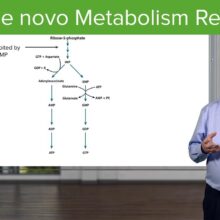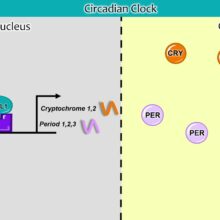Baroreflex Regulation of Blood Pressure, Animation.
(USMLE topics) How heart rate is controlled by the parasympathetic and sympathetic divisions of the autonomic nervous system, with overview of baroreceptor resetting. This video is available for instant download licensing here :
©Alila Medical Media. All rights reserved.
Voice by: Sue Stern
Support us on Patreon and get FREE downloads and other great rewards: patreon.com/AlilaMedicalMedia
Baroreflex, or baroreceptor reflex, is one of the mechanisms the body uses to maintain stable blood pressure levels or homeostasis. Baroreflex is a rapid negative feedback loop in which an elevated blood pressure causes heart rate and blood pressure to decrease. Reversely, a decrease in blood pressure leads to an increased heart rate, returning blood pressure to normal levels. The reflex starts with specialized neurons called baroreceptors. These are stretch receptors located in the wall of the aortic arch and carotid sinus. Increased blood pressure stretches the wall of the aorta and carotid arteries causing baroreceptors to fire action potentials at a higher than normal rate. These increased activities are sent via the vagus and glossopharyngeal nerves to the nucleus of the tractus solitarius – the NTS – in the brainstem. In response to increased baroreceptor impulses, the NTS activates the parasympathetic system – the PSNS – and inhibits the sympathetic system – the SNS. As the PSNS and SNS have opposing effects on blood pressures, PSNS activation and SNS inhibition work together in the same direction to maximize blood pressure reduction. Parasympathetic stimulation decreases heart rate by releasing acetylcholine which acts on the pacemaker cells of the SA node. Inhibition of the sympathetic division decreases heart rate, stroke volume and at the same time causes vasodilation of blood vessels. Together, these events rapidly bring DOWN blood pressure levels back to normal. When a person has a sudden drop in blood pressure, for example when standing up, the decreased blood pressure is sensed by baroreceptors as a decrease in tension. Baroreceptors fire at a lower than normal rate and the information is again transmitted to the NTS. The NTS reacts by inhibiting parasympathetic and activating sympathetic activities. The sympathetic system releases norepinephrine which acts on the SA node to increase heart rate; on cardiac myocytes to increase stroke volume and on smooth muscle cells of blood vessels to cause vasoconstriction. Together, these events rapidly bring UP blood pressure levels back to normal. Baroreflex is a short-term response to sudden changes of blood pressure resulted from everyday activities and emotional states. If hypertension or hypotension persists for a long period of time, the baroreceptors will reset to the “new normal” levels. In hypertensive patients for example, baroreflex mechanism is adjusted to a higher “normal” pressure and therefore MAINTAINS hypertension rather than suppresses it.
[ad_2]
Source link





If this video is helpful to you, please consider supporting our next projects. As a token of our appreciation, we also offer early access to our videos and free image downloads in return, please check us out here: https://www.patreon.com/AlilaMedicalMedia/posts
I got it , thank u very much. nothing simple as this explanation in 4 mins time.
Thanks for creating this video it helped me to learn what was the problem with me .
What an amazing explanation!!
THIS WAS GREAT
Mere massi ka blood pressure control nahi hota tha toh boh buhat preshaan the,fir uno na planet avurveda
se medicine li baha se unko buhat fark pad gya. ab boh bilkul thik ha .
I can't thank you enough👾💞💞💞🤏
great explication . . thank you 👏👏♥️♥️♥️
I finally feel like my grade can be saved due to your videos. Thank you!
Very nice video
شكرا لك ☺️
At the end of this video, it is stated that if hypertension or hypotension exist for a long time, the baroreceptors reset to the new normal levels. If you have high blood pressure for a long time, how do you reset the baroreceptors correctly to get to the proper normal levels? Another question is can plaque buildup in the carotid artery cause the baroreceptors not to work correctly?
thank you so much ^-^
Very helpful , thank youn
Short and appropriate 👍
Wow thank you. So kool
Greaattt illustration
Great!
Amazing!!!
What an explanation!
Great video
Thank you mam❣
Perfect
Thanks
This video really helped me a lot
More power to this channel!
BEST VIDEO OF MY FUCKING LIFEEEE.! I CAN SLEEP NOW
Great video thanks for the content
Really helpful video! Thank you<3
Fantastic – precise and concise – well done